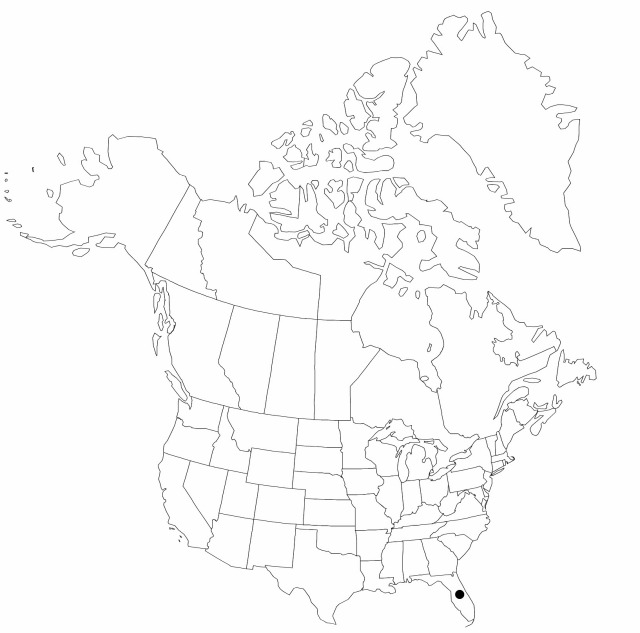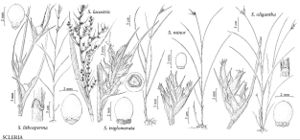Scleria lacustris
Anales Real Acad. Ci. Méd. Fís. Nat. Habana 8: 152. 1871.
Plants annual; rhizomes absent; roots purplish brown to black, fibrous. Culms mostly solitary or few together, stout, 60–180 cm, strongly retrorsely scabrous. Leaves: proximal sheaths purplish, winged, strongly ribbed, sparsely pubescent; contra-ligule triangular; blades linear, M-shaped in cross section, shorter than culms, 10–25 mm wide, glabrous, retrorsely scabrous on midrib, mid lateral veins, and margins. Inflorescences: axillary 2–4, terminal 1, stalked panicles, open paniculate, terminal panicle 7–14 cm with numerous short fascicles 4–8 mm wide, of 2–5 spikelets; bracts subtending inflorescence leaflike, broadly attenuate, ± equaling inflorescence, antrorsely scabrous. Spikelets bisexual and staminate, few flowered, 3.8–5 mm; staminate scales narrowly ovate, pistillate scales purple with prominent green keel, broadly ovate, abruptly acuminate. Achenes greenish to whitish or sometimes mottled gray, shiny, rounded-trigonous to ± circular, ovoid, 3.4–3.8 × 2.3–2.8 mm, smooth, apex rounded; hypogynium whitish to pale brown, bluntly 3-angled, low.
Phenology: Fruiting fall.
Habitat: Marshes, in shallow water
Elevation: 0 m
Distribution

Introduced; Fla., West Indies, Central America, n South America, Africa.
Discussion
Scleria lacustris is adventive in Florida and was first collected in 1988. It has since been found in additional sites and is becoming locally common (C. C. Jacono 2001). The plant is a coarse sprawling annual that appears to have the potential to be a serious invasive in warmer parts of Florida.
Selected References
None.
